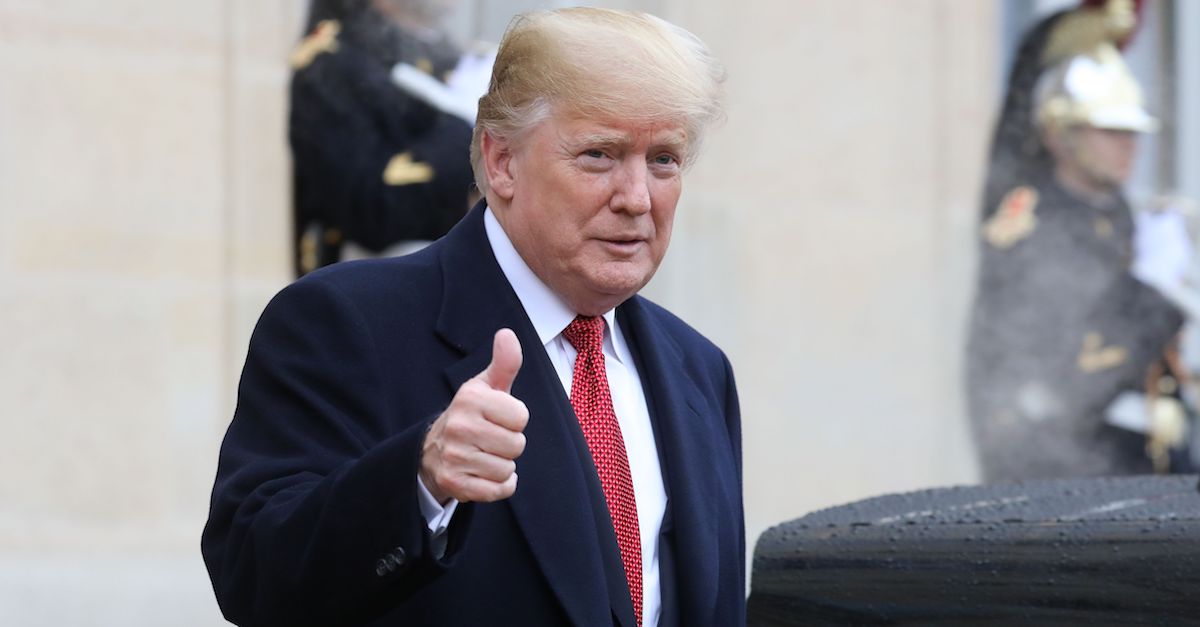
President Donald Trump‘s 2020 re-election campaign has funneled over $1 million worth of campaign money–donor money–into Trump branded businesses and real estate properties, according to a new report.
Federal election filings analyzed by Forbes say that Trump’s 2020 campaign has raked in millions of dollar from donors while Trump himself has converted at least $1.1 million of those donor funds into his own money by charging “the campaign for hotels, food, rent and legal consulting.”
Trump Tower Commercial LLC is a New York State-based entity owned by the 45th president. As of the latest campaign finance filing, the entity had charged Trump’s re-election campaign at least $665,000 in rent. An additional $225,000 in rent payments have been made to this entity through a similar arrangement with the Republican National Committee (RNC).
The extent of the space currently being rented by the 2020 campaign and the RNC is currently unknown but reporter Dan Alexander‘s reporting suggests one of two things: an extreme amount of real estate is currently being occupied–or the Trump Tower business is heavily inflating real estate prices.
Per Forbes:
Leading up to the 2016 election, the president’s campaign paid an average of $2,700 in monthly Trump Tower rent for every person listed in campaign filings as receiving a “payroll” payment. The 2020 operation, by contrast, is shelling out an average of $6,300 in monthly rent for every such person.
And that’s not all.
There’s also the matter of a separate Trump-owned and New York State-based entity known as Trump Plaza LLC. This entity currently controls a retail space, a parking garage, and two medium-sized apartment buildings.
According to federal filings, the Trump 2020 campaign has paid Trump Plaza LLC at least $42,000 in rent since November 2017–but, according to Forbes, there doesn’t appear to be any campaign activity occurring on any such property owned by the entity.
For one, the retail space simply has nothing campaign-related going on whatsoever. Same goes for the parking garage–which appears to be sub-leased to a non-Trump company at present. As for the apartment buildings? It doesn’t look like there’s any campaign-related activity happening there either.
Again, Alexander’s report:
Forbes staked out the buildings, arriving at 7:15 a.m. one November morning and staying for the next 14 hours, with the exception of an 18-minute break around 3 p.m. By our count, seven people went in and out of the twin, four-story brownstones over the course of the day. One refused to talk, and six said they had not seen any sign of the campaign in the buildings. Nor had a man behind the front desk at Trump Plaza. “I’ve been here since the beginning,” he said. “If there was any kind of office rented out for campaigning or whatever, I would know about it.”
The report goes on to speculate that it’s “unlikely” Trump’s 2020 campaign would simply hand cash over to the president for “nothing in return,” and cites an unnamed Trump 2016 staffer who said that Trump Plaza apartments would occasionally serve as crash pads for Trump campaign staff. If that’s the case, of course, it would be a lot cheaper to occasionally rent hotel rooms, but, Alexander notes, “that would not guarantee a steady stream of rent for the president.”
Breaking down that revenue stream is also illustrative.
Since Trump Plaza LLC began charging Trump’s 2020 re-election campaign “rent” in November 2017, such payments have averaged out to some $4,200 per month. Those amounts appear to be quite a bit above market value.
According to Forbes‘ recent perusal of real estate website StreetEasy, recent rents in the same brownstone apartments have gone for $3,700 and $3,850–substantially lower prices (especially in the fiercely competitive Manhattan real estate market) than what Trump’s campaign has been paying the president’s own business for alleged campaign use of those circumspect properties.
And even if it doesn’t seem like much of up-charge? According to Federal Election Commission rules, campaigns are supposed to pay “fair market value” for all goods and services they use–especially when they use and pay their own businesses.
[image via LUDOVIC MARIN/AFP/Getty Images]